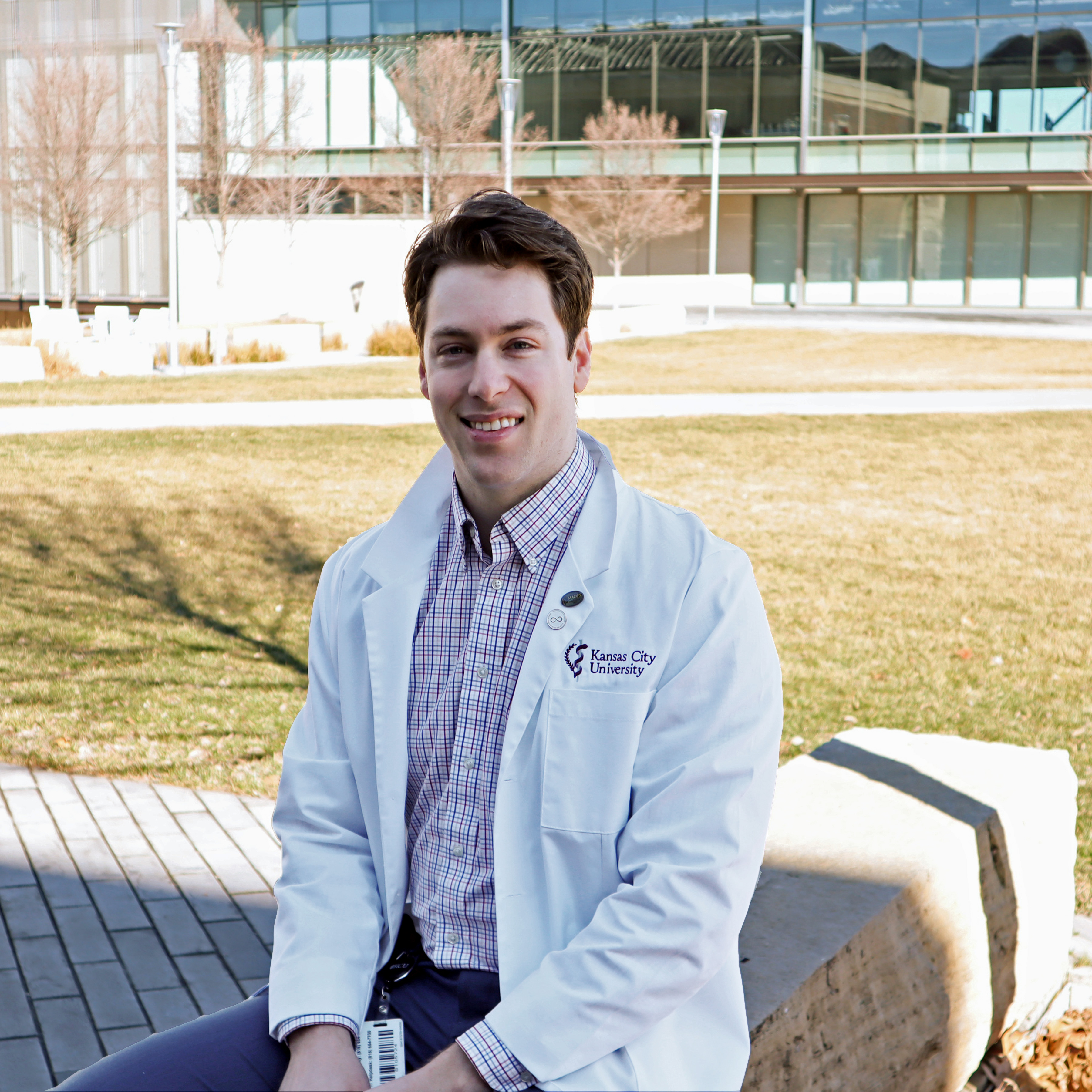Benjamin Pautler, third-year medical student and anatomy fellow, came to Kansas City University (KCU) energized to embrace his medical school studies after a gap year. However, it was an inspiring speaker during orientation who planted a seed that would add an unexpected and meaningful layer to his medical education by piquing his interest in the study of bioethics.
The speaker highlighted the specific ways bioethics enhances the practice of medicine beyond scientific knowledge. KCU’s dual-degree in bioethics offers students insight into the social and moral complexities of an ever-advancing health care system. The rapid pace of integrated technology has made the study of bioethics more critical than ever.
Completed at KCU in tandem with the Doctor of Osteopathic Medicine curriculum, a Masters of Arts in Bioethics empowers students to recognize ethical issues and consider moral reasoning to support clinical decision-making. Paulter was surprised by the practical applications of his courses which includes a range of topics from bioethics and law to culture and diversity.
Luke Bobo, PhD, director of Bioethics and assistant professor, describes the importance of enabling students to apply ethical principles to medical practice, health care policy, biomedical research and advancing technology. "The hope is that the student can engage in an intelligent way with well-honed skills to consider the religious and moral pluralities of all those involved in a decision; the patient, the family, the hospital or clinic, and make a sound decision for that unique context."
The in-depth study of the rights of patients and the obligations of physicians serves as the foundation for bioethical conversations--aspects that physicians will learn as they gain experience as practitioners.
Bioethics extends beyond the lifespan from before life and after death. The topics are not limited to patient care, instead helping to discern and navigate the latest issues in practice or technology. In summer 2024, Bobo will offer an elective course in bioethics and technology. “If artificial intelligence is not harnessed correctly, or any technology is not used wisely, it can be a direct affront to what it means to be human,” Bobo added.
Pautler is quick to praise his experience at KCU. “The faculty is accessible and caring, offering mentorship and guidance on everything from board exams to helping with professional contacts.”
When students understand and appreciate the interconnectedness of medicine and bioethics, we all win as educators, patients and future health care leaders.




(0) Comments